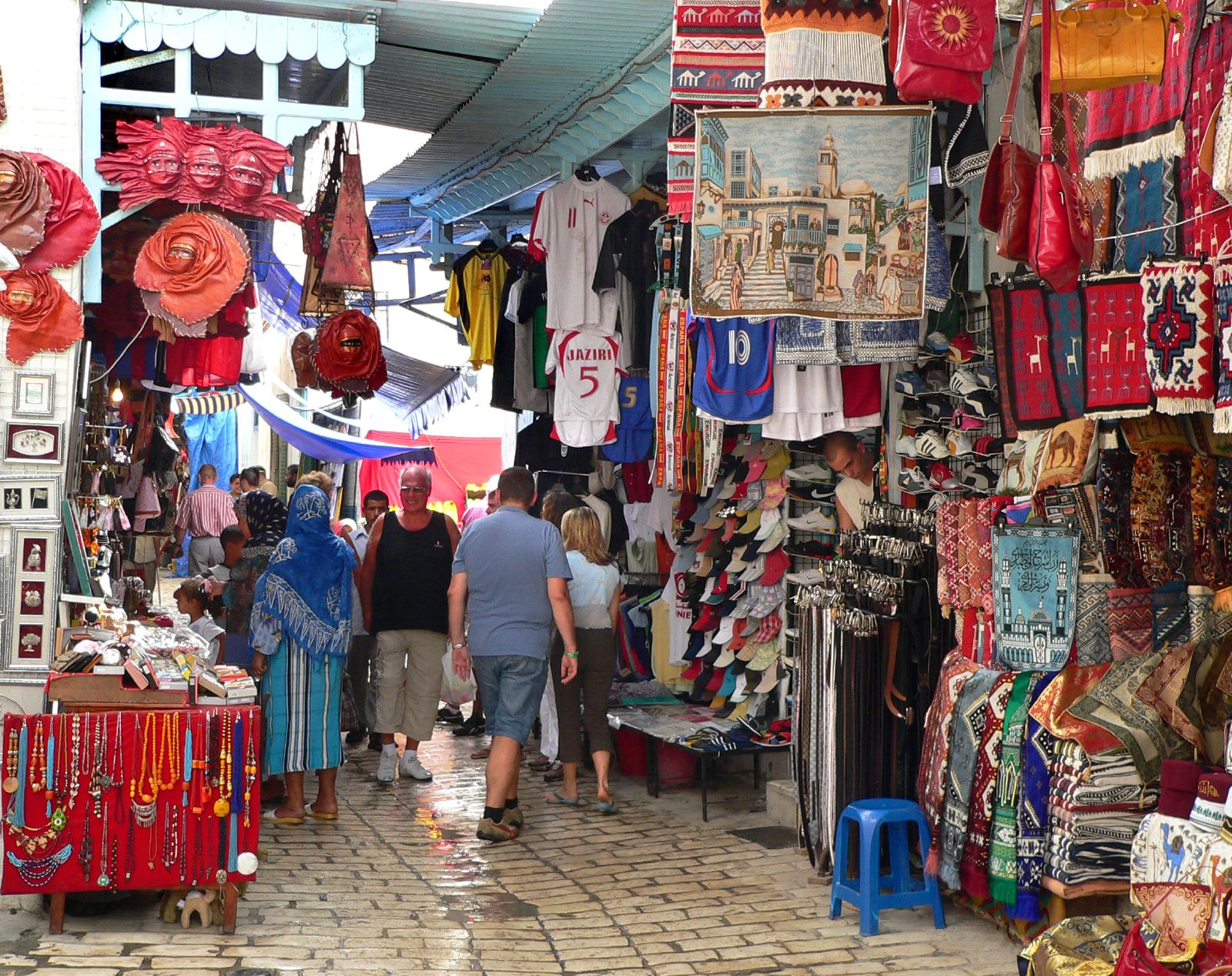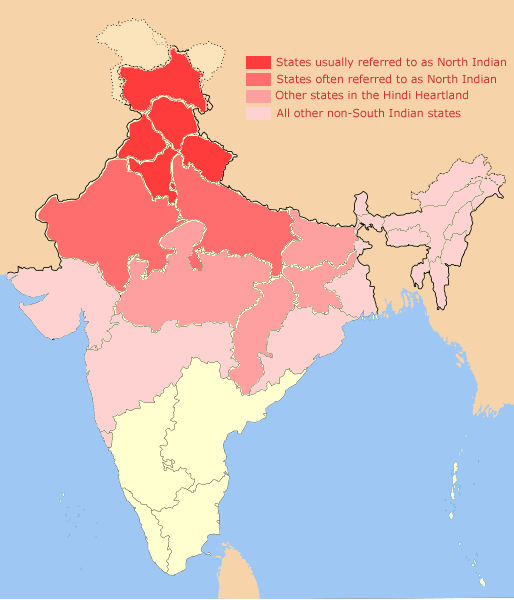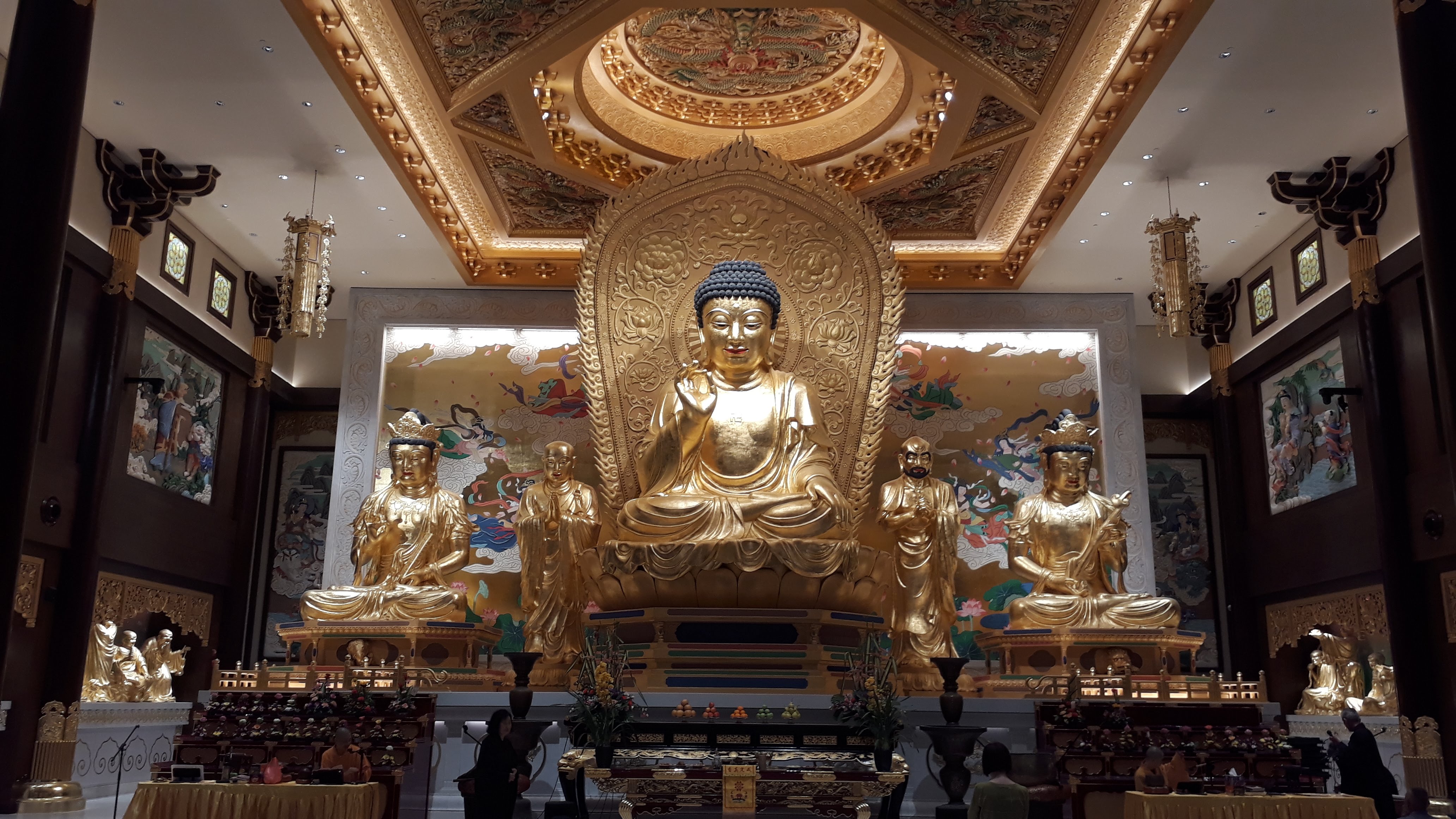|
Tekka Market
Tekka Centre is a multi-use building complex comprising a wet market, food centre and shops, located in the northern corner of Bukit Timah Road and Serangoon Road, in Little India, Singapore next to Little India MRT station. Etymology and history The case of Tekka Centre is often used to illustrate the complexities of Chinese language romanisation in Singapore. The market was originally known as "Kandang Kerbau" (or just "K. K."), Malay for " buffalo pens", referring to the slaughterhouses operating in the area until the 1920s, and the name still lives on in the nearby Kandang Kerbau Women's and Children's Hospital, Kandang Kerbau Police Station and the Kandang Kerbau Post Office. In Hokkien, the market was known as ''Tek Kia Kha'', literally meaning "foot of the small bamboos", as bamboo plants once grew on the banks of the Rochor Canal. This was adapted into the popular name Tekka Pasar (), where '' pasar'' is Malay for "market". The original market was built in 1915, and ... [...More Info...] [...Related Items...] OR: [Wikipedia] [Google] [Baidu] |
Little India, Singapore
Little India ( ta, லிட்டில் இந்தியா) is an ethnic district in Singapore. It is located east of the Singapore River – across from Chinatown, located west of the river – and north of Kampong Glam. Both areas are part of the urban planning area of Rochor. Little India is commonly known as ''Tekka'' in the Indian Singaporean community. History Little India is distinct from the Chulia Kampong area, which, under the Raffles Plan of Singapore, was originally a division of colonial-era Singapore where ethnic Indian immigrants would reside under the plan's outline of the formation of ethnic enclaves. However, as Chulia Kampong became more crowded and competition for land escalated, many ethnic Indians emigrants moved into what is now known as Little India. (The Chulia Kampong district no longer exists as a distinct area.) The Little India area is reported to have developed around a former settlement for Indian convicts. Its location along the Serango ... [...More Info...] [...Related Items...] OR: [Wikipedia] [Google] [Baidu] |
Tekka Mall
The Verge, formerly Tekka Mall, (Chinese: 德卡廊), was the first and largest modern shopping mall at the Little India precinct in Singapore, being opened in 2003. The Verge had two buildings, the main building and Chill @ The Verge. It was located on the southern part of Little India, with the main building is located at the junction of Serangoon Road and Sungei Road and the Chill @ The Verge is located at the junction of Perak Road and Sungei Road. Both of the buildings were separated by Clive Street and the mall lies opposite of Tekka Centre across Serangoon Road. The complex was demolished in 2017 to make way for redevelopment after 14 years of operation, making it one of the youngest malls in Singapore to shut its doors. History In 1915, Kandang Kerbau Market at the junction of Serangoon Road and Rochor Road was built by the Municipal Commission at the cost of S$107,690 on the original site of Tekka Mall. Back then, it was one of the more popular markets in Singapore be ... [...More Info...] [...Related Items...] OR: [Wikipedia] [Google] [Baidu] |
Shopping Malls In Singapore
Shopping is an activity in which a customer browses the available goods or services presented by one or more retailers with the potential intent to purchase a suitable selection of them. A typology of shopper types has been developed by scholars which identifies one group of shoppers as recreational shoppers, that is, those who enjoy shopping and view it as a leisure activity.Jones, C. and Spang, R., "Sans Culottes, Sans Café, Sans Tabac: Shifting Realms of Luxury and Necessity in Eighteenth-Century France," Chapter 2 in ''Consumers and Luxury: Consumer Culture in Europe, 1650-1850'' Berg, M. and Clifford, H., Manchester University Press, 1999; Berg, M., "New Commodities, Luxuries and Their Consumers in Nineteenth-Century England," Chapter 3 in ''Consumers and Luxury: Consumer Culture in Europe, 1650-1850'' Berg, M. and Clifford, H., Manchester University Press, 1999 Online shopping has become a major disruptor in the retail industry as consumers can now search for product ... [...More Info...] [...Related Items...] OR: [Wikipedia] [Google] [Baidu] |
Hawker Centres In Singapore
Hawker or Hawkers may refer to: Places *Hawker, Australian Capital Territory, a suburb of Canberra *Hawker, South Australia, a town *Division of Hawker, an Electoral Division in South Australia *Hawker Island, Princess Elizabeth Land, Antarctica *Hawker Creek, Missouri, United States In business * Hawker (trade), a vendor of food or merchandise * Hawker Aircraft, a British aircraft manufacturer * Hawkers (company), a Spanish sunglasses company Other uses * Hawker (surname) * One who practices falconry, hunting with hawks * Hawker College Hawker College is a senior secondary college in the Australian Capital Territory. It caters to students completing their final two years of secondary education, and offers a wide range of curriculum choices. Established in 1976, Hawker has a non ..., a senior secondary college in the Australian Capital Territory * Hawker (dragonfly), a family of dragonflies in North America and Europe {{DEFAULTSORT:Hawker ... [...More Info...] [...Related Items...] OR: [Wikipedia] [Google] [Baidu] |
1982 Establishments In Singapore
__NOTOC__ Year 198 (CXCVIII) was a common year starting on Sunday (link will display the full calendar) of the Julian calendar. At the time, it was known as the Year of the Consulship of Sergius and Gallus (or, less frequently, year 951 '' Ab urbe condita''). The denomination 198 for this year has been used since the early medieval period, when the Anno Domini calendar era became the prevalent method in Europe for naming years. Events By place Roman Empire *January 28 **Publius Septimius Geta, son of Septimius Severus, receives the title of Caesar. **Caracalla, son of Septimius Severus, is given the title of Augustus. China *Winter – Battle of Xiapi: The allied armies led by Cao Cao and Liu Bei defeat Lü Bu; afterward Cao Cao has him executed. By topic Religion * Marcus I succeeds Olympianus as Patriarch of Constantinople (until 211). Births * Lu Kai (or Jingfeng), Chinese official and general (d. 269) * Quan Cong, Chinese general and advisor (d. ... [...More Info...] [...Related Items...] OR: [Wikipedia] [Google] [Baidu] |
The Verge, Singapore
The Verge, formerly Tekka Mall, (Chinese: 德卡廊), was the first and largest modern shopping mall at the Little India precinct in Singapore, being opened in 2003. The Verge had two buildings, the main building and Chill @ The Verge. It was located on the southern part of Little India, with the main building is located at the junction of Serangoon Road and Sungei Road and the Chill @ The Verge is located at the junction of Perak Road and Sungei Road. Both of the buildings were separated by Clive Street and the mall lies opposite of Tekka Centre across Serangoon Road. The complex was demolished in 2017 to make way for redevelopment after 14 years of operation, making it one of the youngest malls in Singapore to shut its doors. History In 1915, Kandang Kerbau Market at the junction of Serangoon Road and Rochor Road was built by the Municipal Commission at the cost of S$107,690 on the original site of Tekka Mall. Back then, it was one of the more popular markets in Singapore beca ... [...More Info...] [...Related Items...] OR: [Wikipedia] [Google] [Baidu] |
North India
North India is a loosely defined region consisting of the northern part of India. The dominant geographical features of North India are the Indo-Gangetic Plain and the Himalayas, which demarcate the region from the Tibetan Plateau and Central Asia. The term North India has varying definitions. The Ministry of Home Affairs in its Northern Zonal Council Administrative division included the states of Haryana, Himachal Pradesh, Punjab and Rajasthan and Union Territories of Chandigarh, Delhi, Jammu and Kashmir and Ladakh. The Ministry of Culture in its ''North Culture Zone'' includes the state of Uttarakhand but excludes Delhi whereas the Geological Survey of India includes Uttar Pradesh and Delhi but excludes Rajasthan and Chandigarh. Other states sometimes included are Bihar, Gujarat, Jharkhand, Madhya Pradesh and West Bengal. North India has been the historical centre of the Mughal Empire, the Delhi Sultanate and the British Indian Empire. It has a diverse culture, and includ ... [...More Info...] [...Related Items...] OR: [Wikipedia] [Google] [Baidu] |
Hawker Centre
A hawker centre or cooked food centre is an open-air complex commonly found in Hong Kong, Malaysia and Singapore. They were built to provide a more sanitary alternative to mobile hawker carts and contain many stalls that sell different varieties of affordable meals. Dedicated tables and chairs are usually provided for diners. Such centres are usually managed by a governing authority which maintains the facility and rents out stores for hawkers to ply their goods. By countries or regions Hong Kong In Hong Kong, most cooked food centres (熟食中心; or cooked food markets, 熟食市場) are either located in market complexes of residential districts, or as a standalone structure (this being the case in most industrial areas), with only a few exceptions (e.g. Mong Kok Cooked Food Market is located in the lower levels of Langham Place Hotel). Cooked food centres are managed by Food and Environmental Hygiene Department. Most of the stalls from hawker centres are converted fro ... [...More Info...] [...Related Items...] OR: [Wikipedia] [Google] [Baidu] |
Wet Market In Tekka Centre, Singapore - 20030228
Wet may refer to: * Moisture, the condition of containing liquid or being covered or saturated in liquid * Wetting (or wetness), a measure of how well a liquid sticks to a solid rather than forming a sphere on the surface Wet or WET may also refer to: Arts and entertainment Games * ''Wet'' (video game), a 2009 video game * '' Wolfenstein: Enemy Territory'', a 2003 video game * '' Lula: The Sexy Empire'', also titled ''Wet: The Sexy Empire'', a 1998 computer game Music * Wet (band), an American indie pop group * ''Wet'' (album), by Barbra Streisand * "Wet" (Nicole Scherzinger song), a song from the album ''Killer Love'' (2011) * "Wet" (Snoop Dogg song), the lead single from the album ''Doggumentary'' * "Wet" (YFN Lucci song), the lead single from the mixtape ''Wish Me Well 3'' Other media * ''Wet'' (magazine), a magazine about "gourmet bathing" in the late 1970s Businesses * WET (company), a water feature design firm * Wet Lubricants, a brand of personal lubricants ... [...More Info...] [...Related Items...] OR: [Wikipedia] [Google] [Baidu] |
Buddhism In Singapore
Buddhism in Singapore is the largest religion in Singapore, practiced by approximately 31.1% of the population as of 2020. In 2015, out of 3,276,190 Singaporeans polled, 1,087,995 (33.21%) of them identified themselves as Buddhists. Buddhism was introduced in Singapore primarily by migrants from around the world, particularly ethnic Chinese people, over the past centuries. The first recorded histories of Buddhism in Singapore can be observed in early monasteries and temples such as Thian Hock Keng and Jin Long Si Temple that were built by settlers that came from various parts of Asia. There are a variety of Buddhist organizations in Singapore, with the more predominant authorities being established ones such as the Singapore Buddhist Federation. History Given the historic status of Singapore as a British trade port and colonial state, as well as a brief period of Japanese colonial rule during World War II, over the centuries a variety of Buddhist lineages from across the globe ... [...More Info...] [...Related Items...] OR: [Wikipedia] [Google] [Baidu] |
Taoism In Singapore
Taoism in Singapore is the religion of about 8.8% of the country's entire population as per the 2020 census. The definition of "Taoism" in the country is included as part of the wider Chinese folk religion. In general, nearly all adherents of Taoism in Singapore are associated with the mainstream Zhengyi school. Larger proportion of older residents adhere to Taoism, as compared with those in younger age groups. The Taoist Federation of Singapore was first established in 1990 to promote greater public awareness and understanding of the Taoist culture and traditions. Although there are over one thousand Chinese temples in Singapore, only around five hundred-forty Taoist temples and organisations are affiliated to the Taoist Federation. History Taoism first arrived in Singapore with the first Chinese settlers to the country. The majority of these settlers worshipped ''Mazu'' (媽祖) to guide them safely in on their arrival in a new foreign country. Taoist practice later flourishe ... [...More Info...] [...Related Items...] OR: [Wikipedia] [Google] [Baidu] |
Tamil Language
Tamil (; ' , ) is a Dravidian language natively spoken by the Tamil people of South Asia. Tamil is an official language of the Indian state of Tamil Nadu, the sovereign nations of Sri Lanka and Singapore, and the Indian territory of Puducherry. Tamil is also spoken by significant minorities in the four other South Indian states of Kerala, Karnataka, Andhra Pradesh and Telangana, and the Union Territory of the Andaman and Nicobar Islands. It is also spoken by the Tamil diaspora found in many countries, including Malaysia, Myanmar, South Africa, United Kingdom, United States, Canada, Australia and Mauritius. Tamil is also natively spoken by Sri Lankan Moors. One of 22 scheduled languages in the Constitution of India, Tamil was the first to be classified as a classical language of India. Tamil is one of the longest-surviving classical languages of India.. "Tamil is one of the two longest-surviving classical languages in India" (p. 7). A. K. Ramanujan described it as "the on ... [...More Info...] [...Related Items...] OR: [Wikipedia] [Google] [Baidu] |





